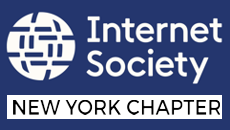@InternetSociety Statement on the #NETmundial Initiative
 Yesterday, November 16 2014. following its meeting in Honolulu, the Internet Society’s Board of Trustees issued the following statement:
Yesterday, November 16 2014. following its meeting in Honolulu, the Internet Society’s Board of Trustees issued the following statement:
Recently, the “I* Groupâ€[1] was invited to participate in the NETmundial Initiative, which is different from the one-time NETmundial meeting in which we participated in April 2014; we endorsed the outcomes of that meeting. This new and different NETmundial Initiative has been organized by the partnership of the Brazilian Internet Steering Committee (CGI.br), the Internet Corporation for Assigned Names and Numbers (ICANN), and the World Economic Forum (WEF)[2]. This announcement has resulted in considerable discussion and concern amongst various stakeholders regarding the purpose, scope, and nature of the proposed activity or organization.
The Internet Society Board discussed this proposed NETmundial Initiative in depth during its meeting November 15 – 16, 2014. As a result, the Internet Society Board first emphasizes that the main priority facing the Internet community right now is the IANA Functions’ Stewardship Transition and recommends that all organizations in the Internet community should be highly focused on effectuating a successful transition. The Internet Society remains fully committed to the September 2015 milestone set for completing a plan that will meet the criteria set by U.S. National Telecommunications & Information Administration (NTIA).
With respect to the need for new groups, such as the NETmundial Initiative and its Coordination Council, the Internet Society Board reiterates that the Internet Society’s longstanding position is that there is no single, global platform that can serve to coordinate, organize or govern all the Internet issues that may arise. At its heart, the Internet is a decentralized, loosely coupled, distributed system that allows policies to be defined by those who require them for their operations and that ensures that issues can be resolved at a level closest to their origin. The ecosystem draws its strength from the involvement of a broad range of actors working through open, transparent, and collaborative processes to innovate and build the network of networks that is the cornerstone of the global economy.[3] Based on the information that we have to date, the Internet Society cannot agree to participate in or endorse the Coordination Council for the NETmundial Initiative. We are concerned that the way in which the NETmundial Initiative is being formed does not appear to be consistent with the Internet Society’s longstanding principles, including:
• Bottom-up orientation
• Decentralized
• Open
• Transparent
• Accountable
• Multi-stakeholderThe Board has asked the Internet Society’s CEO, Kathryn Brown, to convene a dialogue within the Internet Society community. This includes Internet Society Chapters from around the world, Internet Society organization members, the Internet Engineering Task Force (IETF), the the Internet Architecture Board (IAB), partners from the Internet technical community, and others. The dialogue should consider whether any new initiatives or groups are needed at the current time and, if so, to define the objectives for any such effort.
In addition, Bob Hinden, Chairman of the Internet Society Board of Trustees has initiated a dialogue with the Chairman of the ICANN Board, given ICANN’s leading involvement in the NETmundial Initiative.
The Internet Society remains committed to a vision of the Internet that is open, inclusive, decentralized and for the benefit of all people throughout the world.
Notes:
[1] The I* Group encompasses the Internet Society, IETF, IAB, World Wide Web Consortium (W3C), Regional Internet Registries (RIRs), ICANN, and the regional Top Level Domain (TLD) organizations.
[2] https://www.netmundial.org/press-release-1
[3] The Internet Society’s position from the World Summit on Information Society (WSIS) of 2003 and 2005, is “Many issues cannot be solved by new, overarching structures at a global level but rather by building on today’s open, multi-stakeholder and cooperative processes.†And that the community should “…consider whether new structures will bring truly measurable, positive change to the functioning, stability, security and openness of the Internet.†(http://www.internetsociety.org/wsis).

Eric Brunner-Williams 1:31 am on 11/17/2014 Permalink |
i concur with the observation that no single, global platform that can serve to coordinate, organize or govern all the Internet issues that may arise, and also therefore that isoc should not participate in or endorse the Coordination Council for the NETmundial Initiative.
Antoniojr Avellanosa 6:26 am on 11/17/2014 Permalink |
In brief, I got the salient points, thanks for the info. An ongoing Internet discussion would be another healthy option
joly 5:44 am on 11/20/2014 Permalink |